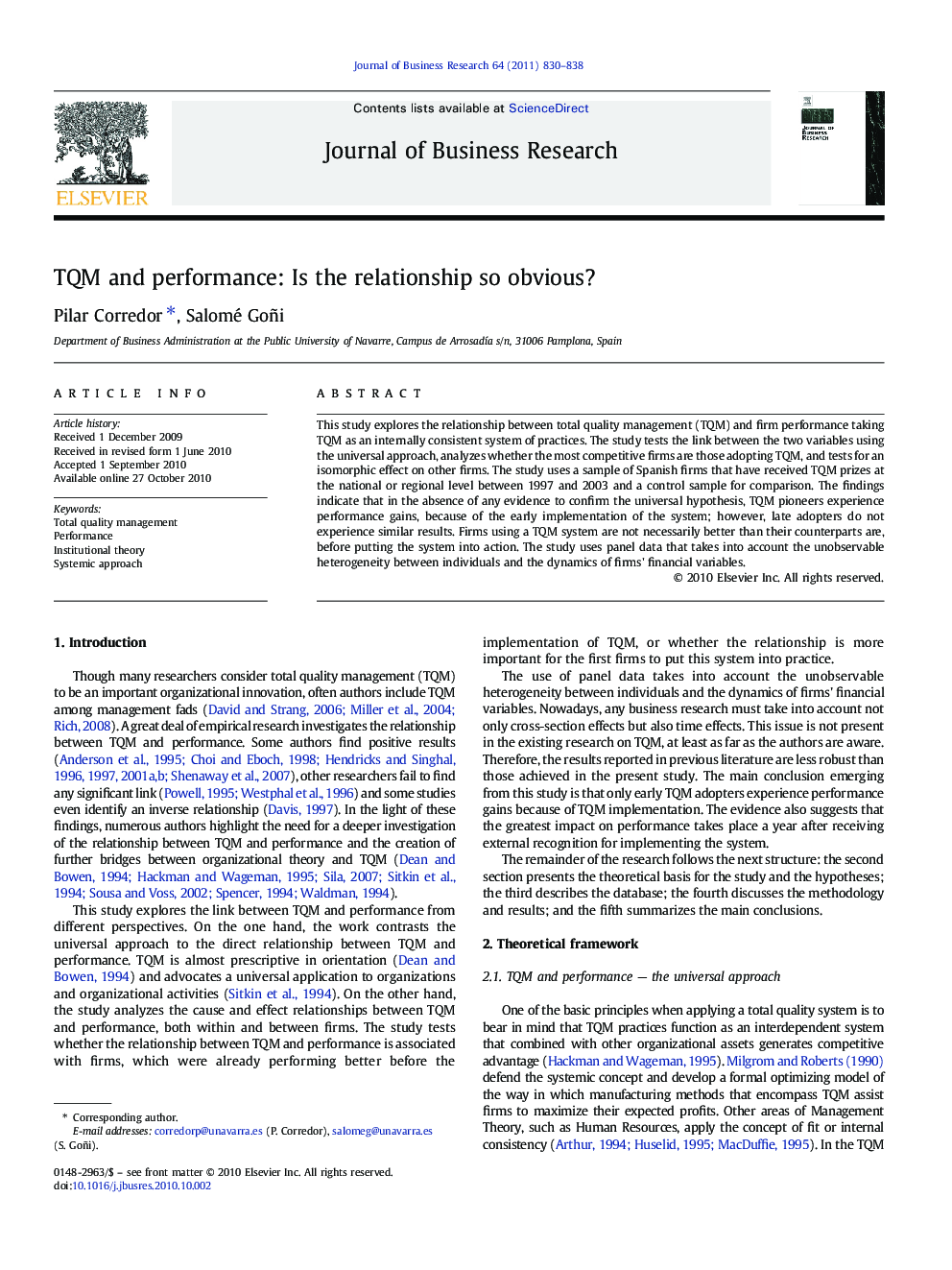| Article ID | Journal | Published Year | Pages | File Type |
|---|---|---|---|---|
| 1018312 | Journal of Business Research | 2011 | 9 Pages |
Abstract
This study explores the relationship between total quality management (TQM) and firm performance taking TQM as an internally consistent system of practices. The study tests the link between the two variables using the universal approach, analyzes whether the most competitive firms are those adopting TQM, and tests for an isomorphic effect on other firms. The study uses a sample of Spanish firms that have received TQM prizes at the national or regional level between 1997 and 2003 and a control sample for comparison. The findings indicate that in the absence of any evidence to confirm the universal hypothesis, TQM pioneers experience performance gains, because of the early implementation of the system; however, late adopters do not experience similar results. Firms using a TQM system are not necessarily better than their counterparts are, before putting the system into action. The study uses panel data that takes into account the unobservable heterogeneity between individuals and the dynamics of firms' financial variables.
Related Topics
Social Sciences and Humanities
Business, Management and Accounting
Business and International Management
Authors
Pilar Corredor, Salomé Goñi,
